How Thailand’s elephant camps are transitioning to a cruelty-free future
From a life of forced labour in the logging industry to performing in exploitative circus shows, Thailand’s captive elephants have had it tough. But Lauren Jarvis finds a new breed of sustainable, ethical tourism camps are putting the animals first

“This herb is excellent at clearing up haemorrhoids,” explains Atichart Chatpisitchaikul, or “Tong”, my guide at the ChangChill elephant camp in the hill country outside of Chiang Mai in northern Thailand.
My fellow trekkers and I glance down at the mountainous pile of poop at our feet and wrinkle our noses in unison before Tong pushes on up the hill and we follow behind, bamboo trekking poles helping to speed our ascent to the top of the slippery slope.
Eating around 10 per cent of their body weight in food every day, it’s no surprise that a four-ton elephant processing 400kg of bamboo, sugar cane, leaves and bananas may need a little anorectal assistance now and then.
Here at ChangChill, the camp’s four resident elephants are visited fortnightly by a vet, with 24/7 interim care provided by their own PA: a local mahout, or elephant buddy, who keeps them content and leaves the visiting guests safe. The name ChangChill is an appropriate one: in Thai, ‘chang’ means elephant and ‘chill’ means relaxed.
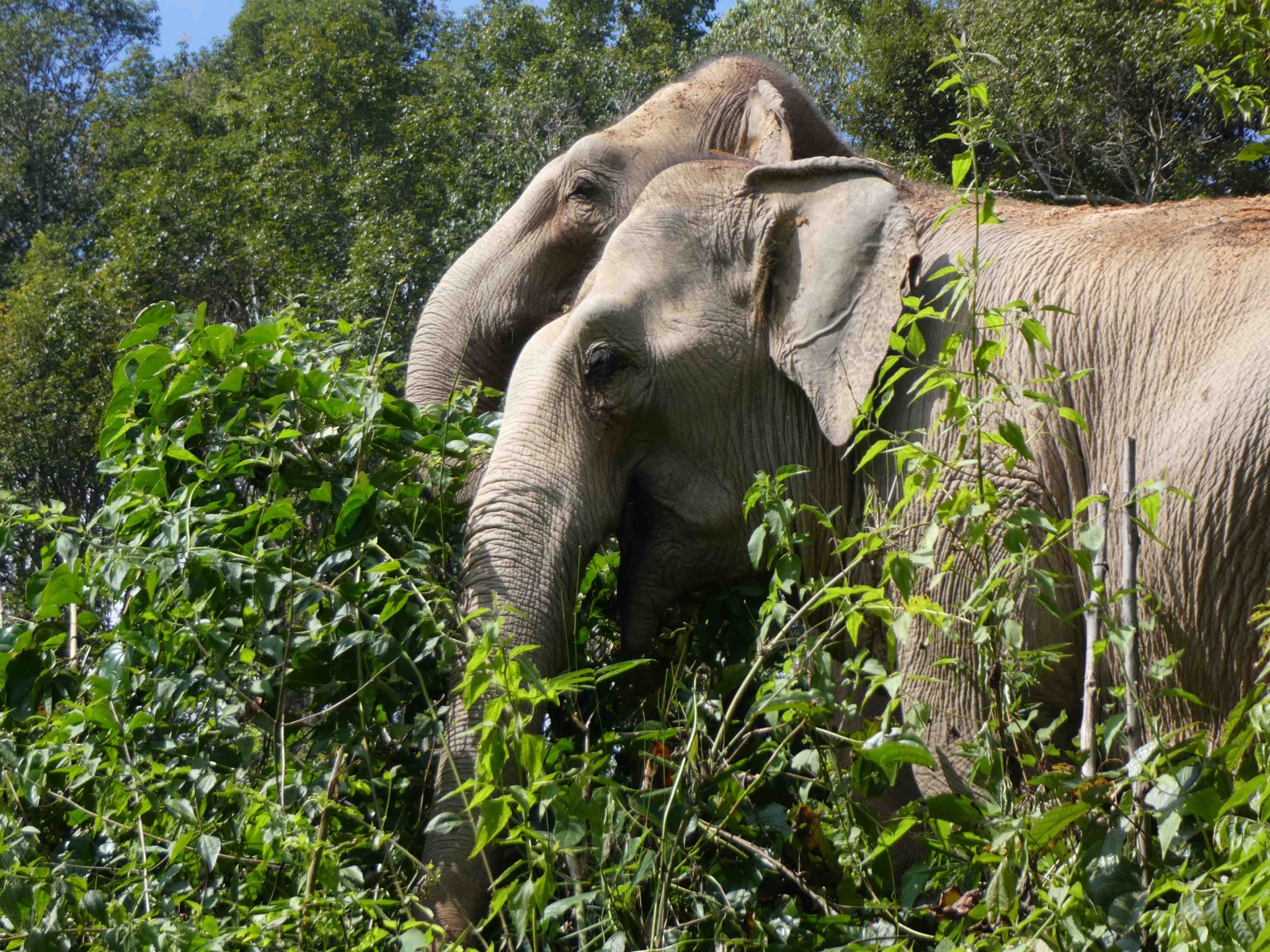
Read more: Thailand travel guide – Everything you need to know before you go
ChangChill is one of three elephant camps I experience on a two-week journey through Thailand with the Experience Travel Group, which offers immersive adventures across Asia. It’s also one of a new breed of ethical camps working to tempt travellers away from the exploitative elephant shows and elephant riding experiences which still operate in Thailand. In the eight-acre forest at ChangChill, there’s no riding, no touching, and the sharp bull hooks traditionally used by mahouts to exert control over their animals are nowhere in sight. Instead, we trek into the forest to watch elephants foraging from 10–15 metres away, chop sugar cane which they eat while we watch from an observation deck, and make energy balls of banana, tamarind, rice husks and the all-important medicinal herbs, which are fed to them by their mahouts, rather than us.
“The elephants roam free around the property: they live well and eat well,” says the camp’s chief mahout, Chira Pongpathapee. “When I was young, I always saw elephants working hard logging or carrying tourists, but now they live in a different world. Here, they are happy.”
Like the majority of the 2,798 captive elephants kept in the country’s 246 tourism camps, the four mid-life female elephants at ChangChill – Mae Korn, Mae Too, Mae Mayura and Mae Gohgae (’mae’ means mother in Thai) – started their lives hauling heavy trees in the forests of Thailand. When the government banned the use of elephants for logging in natural forests in 1989, thousands of animals were suddenly jobless and their desperate owners – largely members of the Karen indigenous communities, who live in the hills to the north of the country – had to find new ways to pay for their elephants’ keep, with most of them transitioning into tourism.
“Tourists pay to visit commercialised elephant camps, which are designed as entertainment attractions,” explains Hatai Limprayoonyong, Wildlife Campaign Manager at World Animal Protection Thailand, a leading welfare organisation working to end animal exploitation. “Here, they can pet, feed, take photographs, ride and wash elephants, or watch them perform in circus-like shows. Unfortunately, almost all of these elephants experience cruelty and poor welfare conditions at these venues.”
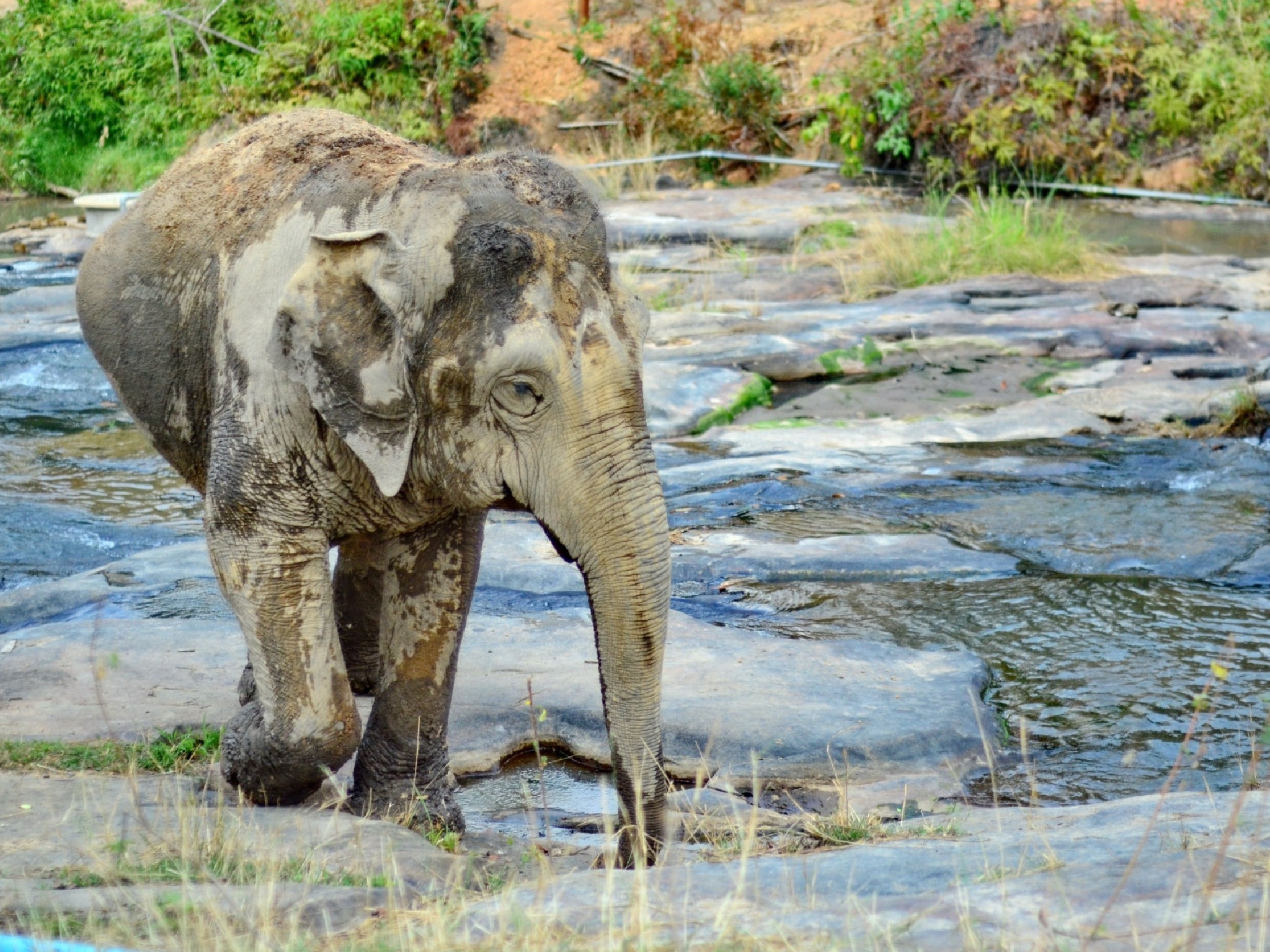
Read more: The best time to visit Thailand to avoid crowds
Hailing from a family that has worked with and cared for elephants for generations, ChangChill owner, Supakorn Tananseth, allowed visitors to ride and bathe the elephants in his care until World Animal Protection started working with the camp in 2017, guiding its transformation into an operation which puts the elephants’ needs first.
“The initiative stemmed from the Elephant Friendly Conference, where elephant camp owners were invited to explore transitioning their traditional tourism business, which often exploited elephants for entertainment, into more humane, welfare-centred models,” says Hatai.
In partnership with World Animal Protection, Supakorn expanded and redesigned his camp to accommodate elephants’ natural behaviours, creating separate areas for tourists and elephants to ensure the safety of both and avoid any direct contact. The mahouts also received support, including improved living conditions and training on how to manage elephants ethically. ChangChill became the first elephant-friendly venue in northern Thailand, meeting the criteria set by World Animal Protection’s Elephant Friendly standards, and offering observation-only experiences.
“By 2023, ChangChill’s business was thriving, demonstrating financial viability, and they’re now working on a project to open their second location. This serves as an example of an elephant-friendly business model that not only improves elephant welfare, but also ensures the sustainability of the business and livelihoods of the local people involved,” says Hatai.
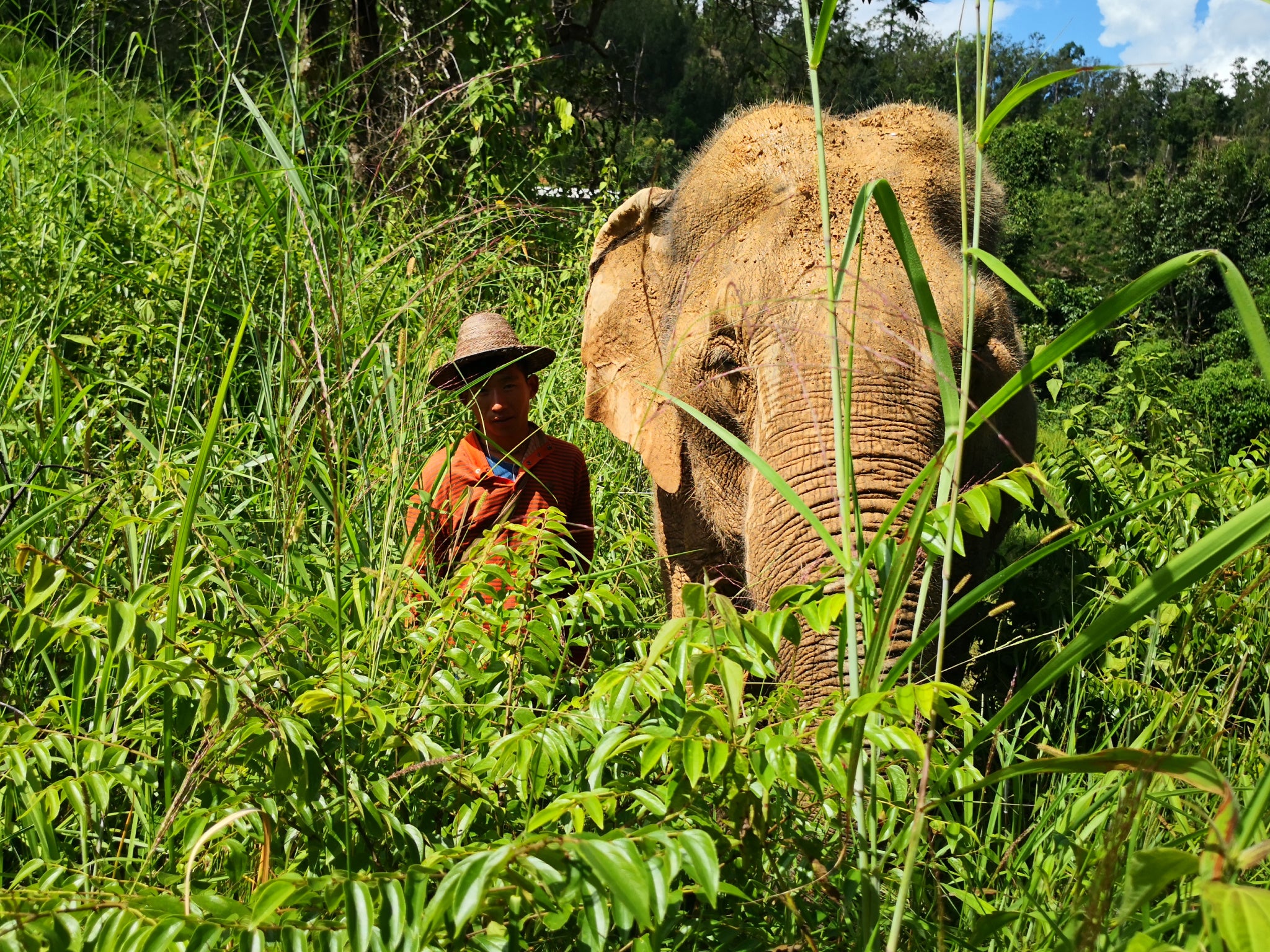
Read more: The best beaches in Thailand
While efforts have been made by the Thai government to address the welfare of captive elephants, such as introducing Guidelines for Elephant Welfare Management in 2020 and guidance on Good Practices for Elephant Facilities in 2021, as yet there are no plans to ban the remaining circus shows or elephant riding that keep so many elephants trapped in a cycle of abuse.
World Animal Protection is now advocating for an Elephant Protection Bill to prohibit breeding elephants for commercial purposes, using cruel training methods and forcing elephants to perform unnatural behaviours.
“Thailand’s captive elephants have never had the chance to live free in nature,” says Tong, as we leave the feeding observation deck at ChangChill and the elephants wind their way back into the forest. “Our mission here is to give them happy lives, where they can do what they want to do, free from work and stress.”
Until the circus shows are legally shut down, it’s the important choices of travellers that can break the chains and ensure a kinder future for Thailand’s captive elephants: luckily for us, we have the freedom to choose.
Where to book it
See elephants ethically in Thailand with Asia specialist Experience Travel Group. A two-week tailor-made trip, including two nights at Anantara Golden Triangle Elephant Camp, three nights at Tamarind Village and three nights at Mahouts Elephant Foundation starts at £4,950 per person. Price is based on two people travelling and includes B&B accommodation, transport, activities and international flights.
The best ethical elephant sanctuaries in Thailand
“Tourism can have positive benefits for elephants in Thailand,” says Sam Clark, co-founder and managing director at Experience Travel Group. “Without tourism, as we saw during the Covid-19 pandemic, elephants can suffer badly without the tourist revenues to support them and their upkeep. In recent years, demand from tourists for high-quality and ethical practices has driven an improvement in conditions at a majority of camps in Thailand. Doing your research on the camp, booking with a reputable tour operator and asking questions will help this process to continue.”
Mahouts Elephant Foundation, Mae Sot
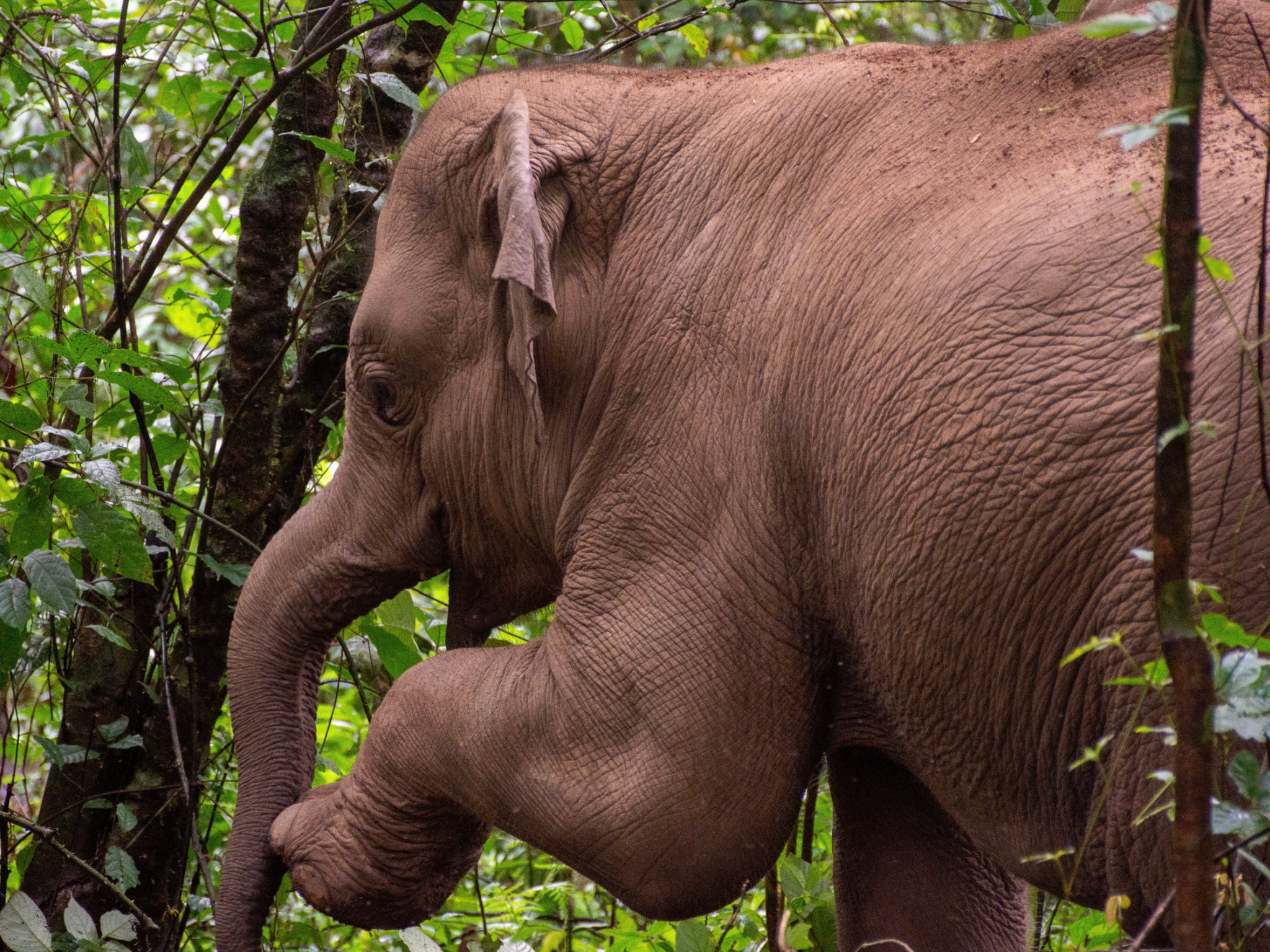
Mahouts Elephant Foundation works in partnership with Karen indigenous communities to develop community-based tourism models for observation-only elephant encounters. The projects are in vast areas of forest, enabling elephants to live naturally, while tourists observe from a safe and respectful distance. The foundation is currently fundraising to save six more elephants from entering the tourist industry.
Elephant Nature Park, Chiang Mai
Established by elephant advocate Lek Chaillert in 2003, Elephant Nature Park in Northern Thailand now looks after more than 100 elephants, rescued from abuse in the tourism and entertainment industries. Lek’s Save Elephant Foundation educates elephant owners and raises awareness of the plight of captive and wild elephants in Thailand and throughout Asia.
Samui Elephant Sanctuary, Koh Samui
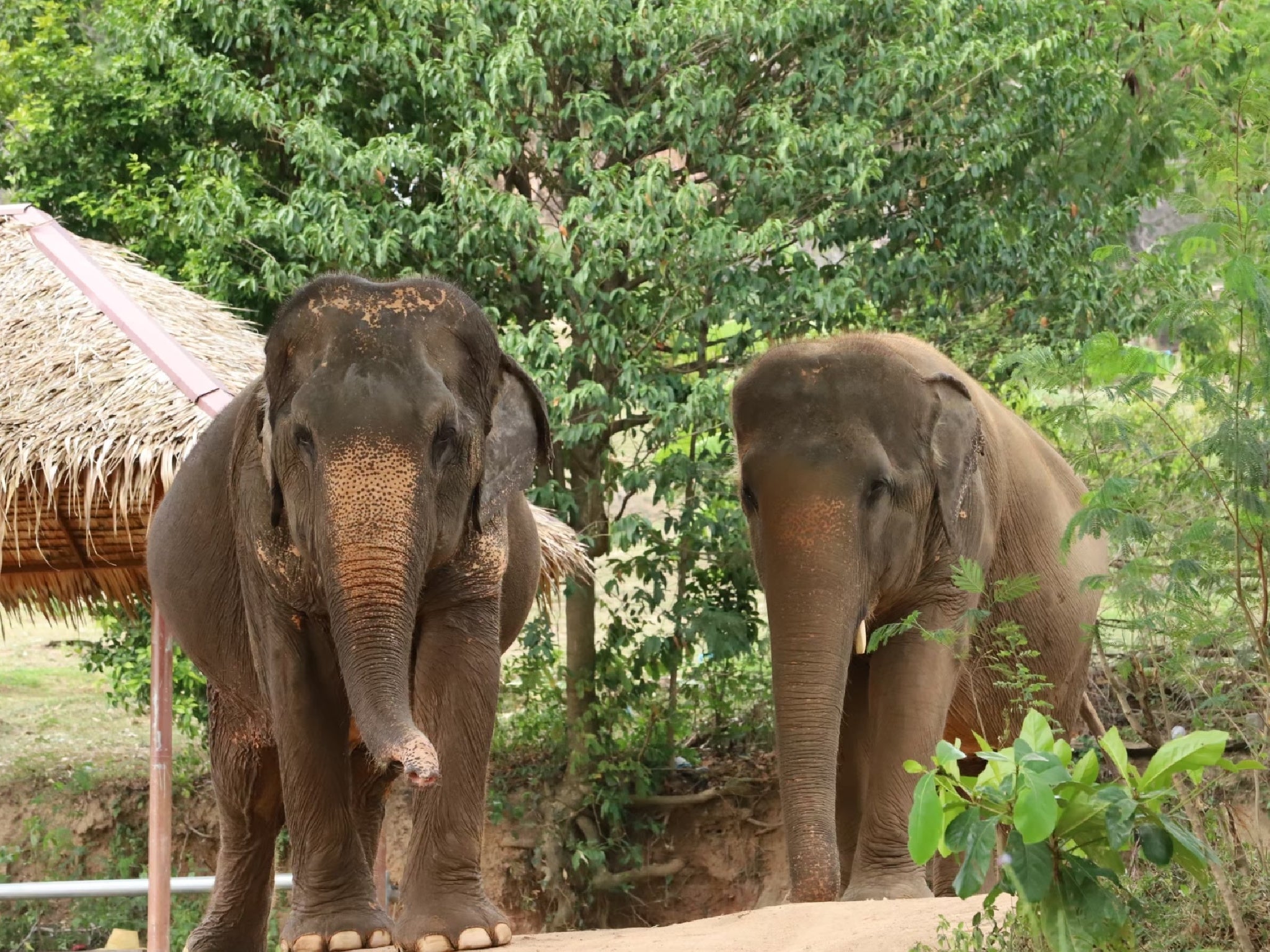
Inspired by Lek Chaillert’s work, Wittaya Sala-Ngam founded Samui Elephant Sanctuary in 2018 and now has two venues on the island of Koh Samui in Bophut and Chaweng Noi. Recognised by World Animal Protection as a Best Practice Elephant Venue, visitors can feed, walk with and observe the elephants as they forage, socialise and play.
Following Giants, Krabi and Koh Lanta
Elephants rescued from the logging and tourism industries have found greater freedom and room to roam at Following Giants’ two “no-touch” sanctuaries in southern Thailand. Supported by World Animal Protection, Charae “Ray” Sangkaow was able to open his first ethical elephant sanctuary on the island of Koh Lanta, with a second venue opening in Krabi this year.
Read more about ethical elephant tourism in Thailand with these guides from World Animal Protection and Experience Travel Group. Discover more about Thailand at Tourism Authority of Thailand
Find out more about ethical and sustainable travel options, and other ways to support local communities and protect the environment during your stay at Responsible Thailand



Join our commenting forum
Join thought-provoking conversations, follow other Independent readers and see their replies
Comments